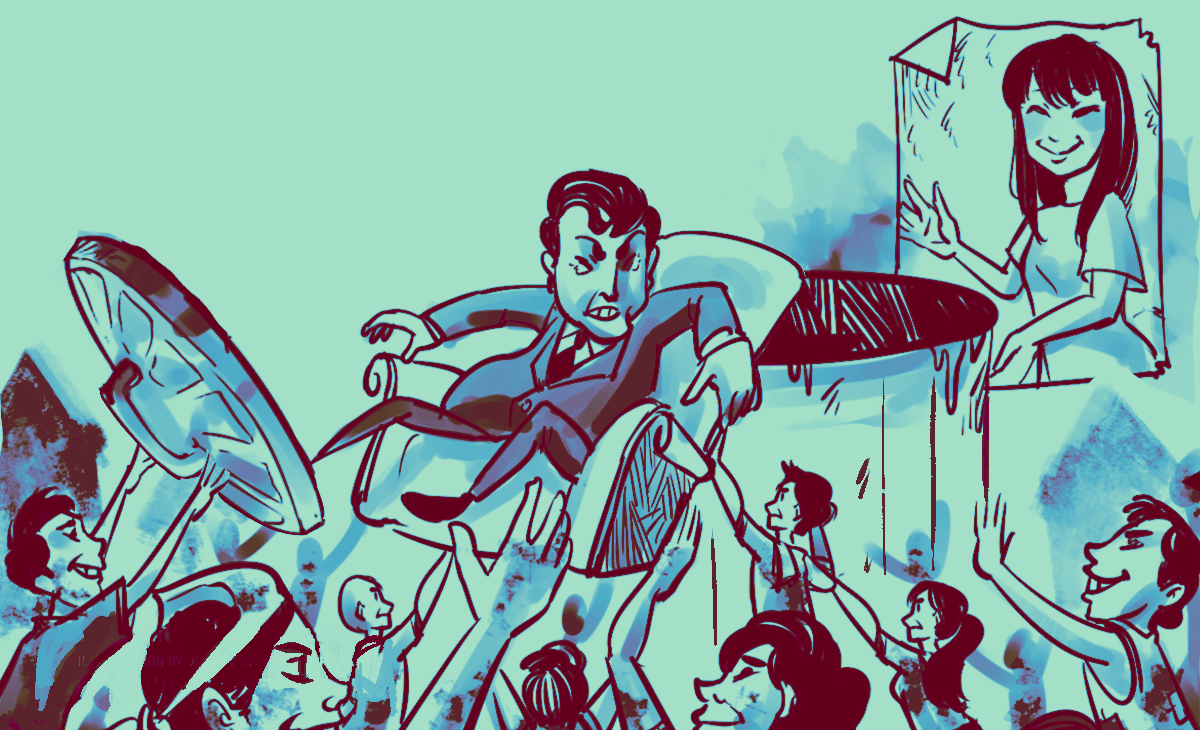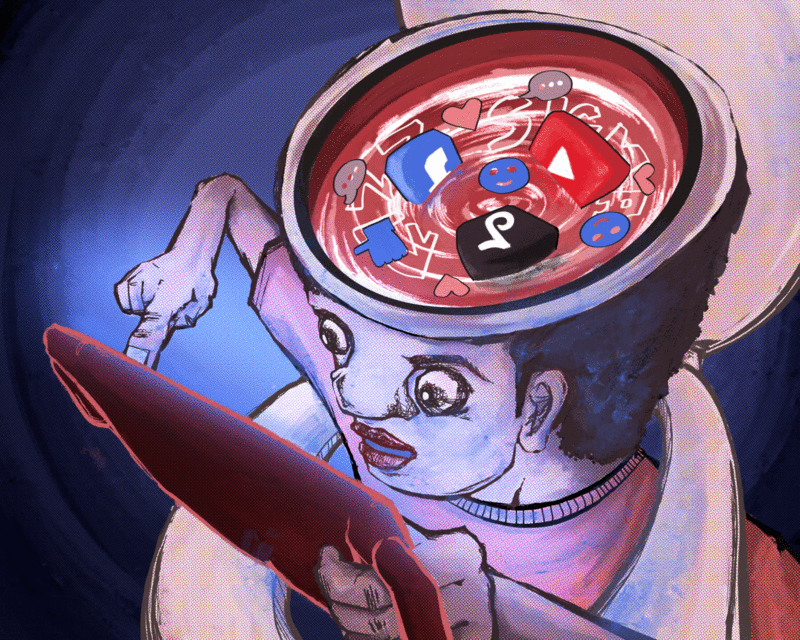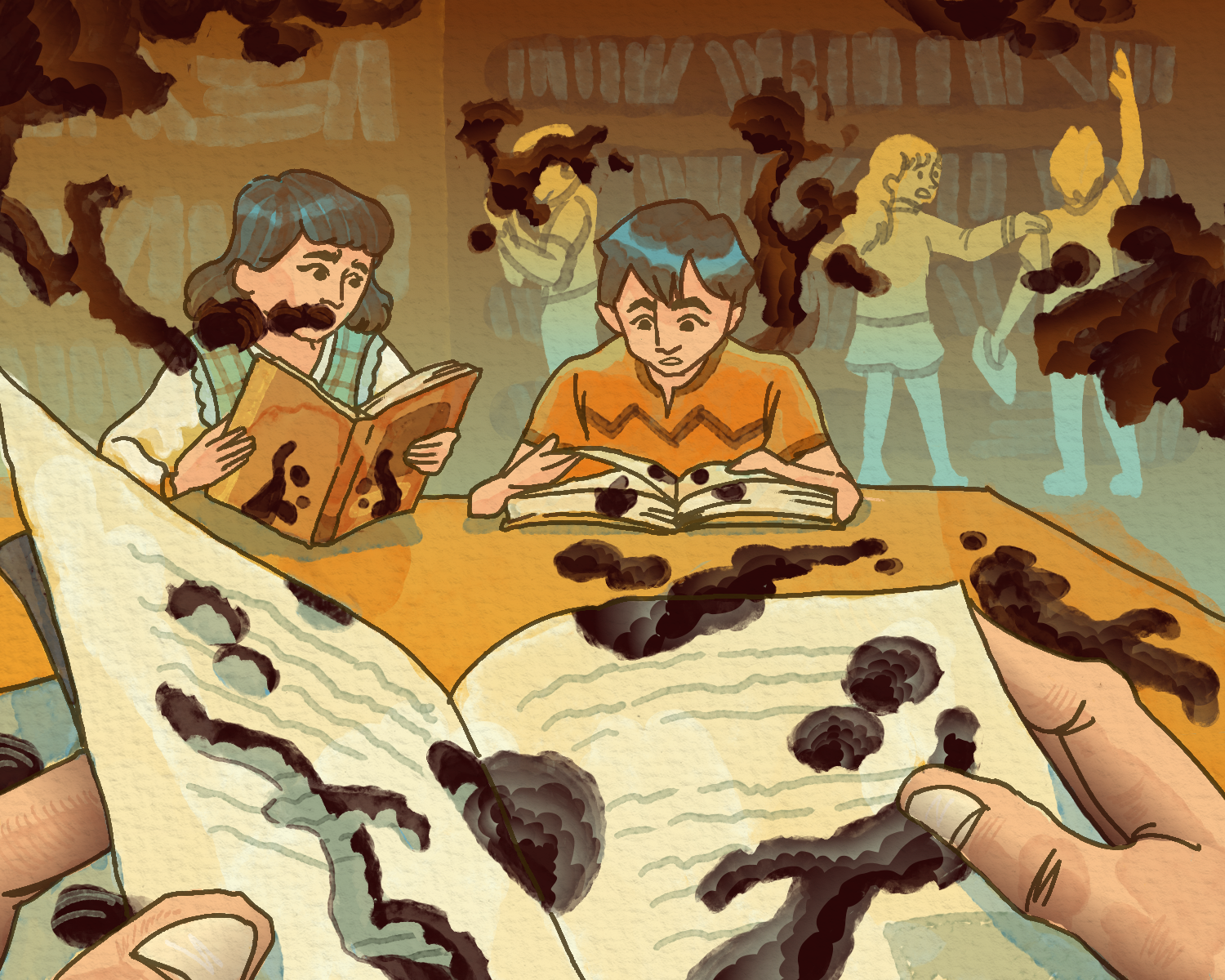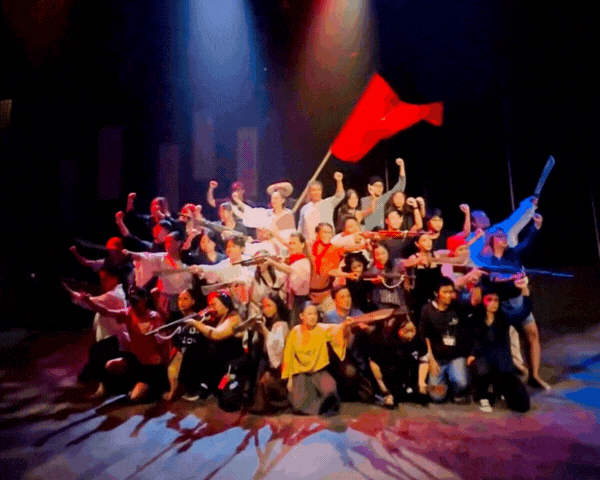Marie Kondo would find herself at a loss in a home in Tondo.
For all her signature cheer and Zen determination, Kondo might blush at the sight of underwear and shirts hanging on window railings for all the world to see. She might be amused by the Christmas lights still strung on eaves months after the holidays and wonder in what world some dried palm leaves dangling from the door could “spark joy.”
Kondo might ask whether the Avon lotion, Maxi-Peel toner, and Baby Bench cologne could be stashed away from the foot of Baby Jesus near the TV. She would marvel at the plastic bags that burst from one of the drawers under the sink, and puzzle over what to do with a shelf full of Precious Hearts Romance pocketbooks or a wall ridden with crumbly posters of James Reid.
Here, where homes are cobbled together out of plywood, tarpaulin, and corrugated tin, amid what the rest of the world might call junk, Kondo might be surprised to discover the radical potential of her own tips on tidying up.
Point of Purchase
Where Kondo’s clients come from, cupboards overflow with knick-knacks, and boxes of holiday décor crowd half of a three-car garage. This image resonates with an American middle class compelled to amass stuff to keep up with the market’s ever-growing volume of products.
This is what neoliberalism tells you: The more stuff you buy, the happier and more successful you will be. This global economic order wagers on the consumers’ activity and class-based insecurities, to paraphrase Polish sociologist Zygmunt Bauman. Its premium is private gain, the penchant of businesses for tricks of the trade that boost profit and rob you of any real significant choice.
Big-box stores like SM, for instance, churn out all manner of products designed for everything but endurance and made to clog Filipino homes. Meanwhile, stalls in Divisoria peddle cheap mass-produced goods from China’s sweatshops while ukay-ukay stores recycle the detritus of Western markets: fur-lined coats, giant corduroy pants, polka-dot ties, even animal costumes.
Kondo’s wisdom seems to fall apart in the Global South. After all, the economy in countries like the Philippines is at the hands of an elite that decides what to produce, at what cost in wages, and at what profit margin the products can be sold back to the very laborers that made them.
Herein lies one of the travesties of the free market: the myth of choice and the irony in how the poor who have to be the most enterprising to make ends meet are deprived of resources to manage their homes, let alone their lives.
Waste and Want
Kondo’s tips are undermined not just by a supply chain that cashes in on dwarf economies like the Philippines’, but more so by a global culture steeped in centuries of colonial subservience and imperial interests.
Nowhere is this more apparent than in Filipino families held hostage by beliefs and traditions meant to keep them as docile laborers—sticking it out while awaiting rewards, if not now then in the afterlife.
Take a Filipino household that devotes a corner of their home to an altar. The family regards religious relics not as clutter but as tokens on which to pin its hopes of pulling around spells of economic distress. Pin-up calendars culled from men’s magazines speak of weeks spent on a shoestring budget till the next payday. Wood-laminated diplomas bear proof of achievements the poor had to come by to show for years of perseverance.
Kondo would need no translator to know this is what survival looks like: an assortment of stuff kept like the many risks people down on their luck take on a wing and a prayer. Indeed, despite appearances, Filipinos actually make do with far less than what is needed for a life with dignity.
Clothes, shoes, bags, and phones are either shared or handed down. Ice-cream tubs after birthday parties turn into food containers. Wedding souvenirs double as decors. Ferrari toy cars from Shell, broken toys, and collectibles from McDonald’s adorn otherwise empty racks and shelves.
Unlike Kondo’s American suburban clients, Filipinos are adept housekeepers and troubleshooters as it is. But they are too busy eking out measly wages to harbor any delusion that something as basic as shedding junk would solve their woes borne of social injustices, catastrophe, and violence.
Ballast and Baggage
The lifestyle changes Kondo promotes make more sense to the middle class who are given to market pressures and who would do well to spurn a culture of waste and excess.
But, for the poor, Kondo’s method falters unless brought to its logical conclusion: a systemic purge that is just as much about throwing away stuff that fail to spark joy as about overthrowing those larger structures of power that stand in the way of a decent life.
A government, for instance, that lays waste to communities on the fringes no longer serves its purpose. Officials that kick off the streets or haul off to jails those they view as society’s scum deserve replacement. Corporations that smother the planet and shove needless stuff down people’s throats belong to nowhere but the scrapheap of history.
This is the sort of cleanup of public life the poor stand to gain the most from in the long haul. They have been suffering the inhumanities of being denied purchasing power for so long that they have no more to lose if they opt to let go of an inutile state beholden to a corporate elite.
Such is the radical potential of decluttering that Kondo unwittingly stands for: to be ruthless in curating what comprises your world beyond the messes of personal affairs and the refuse of material possession—to assess collective choices, retaining not just what gratifies but also what incites growth and allows for a shot at what else life has to offer.
It might hit you, for instance, that you live in a place where people cling so tightly to traditions that they keep dried palm leaves hanging from their front doors, or have been so knocked down in life they would rather hold on to religious amulets and old romance pocketbooks than chuck these sources of what little comfort they could get.
That all this is just a spark of joy short of clutter, however, is an indictment of a world where entire communities may be targets for disposal.
When the slums of Tondo get razed by fire, or when hovels are ripped down and homes demolished, Kondo would have to ask herself if a spark of joy is all that could spare lives from ending up in a dumpsite. ●
Published in print in the Collegian’s February 13, 2019 issue.





